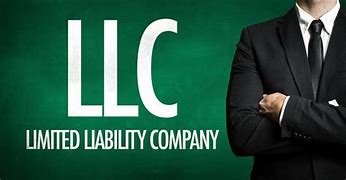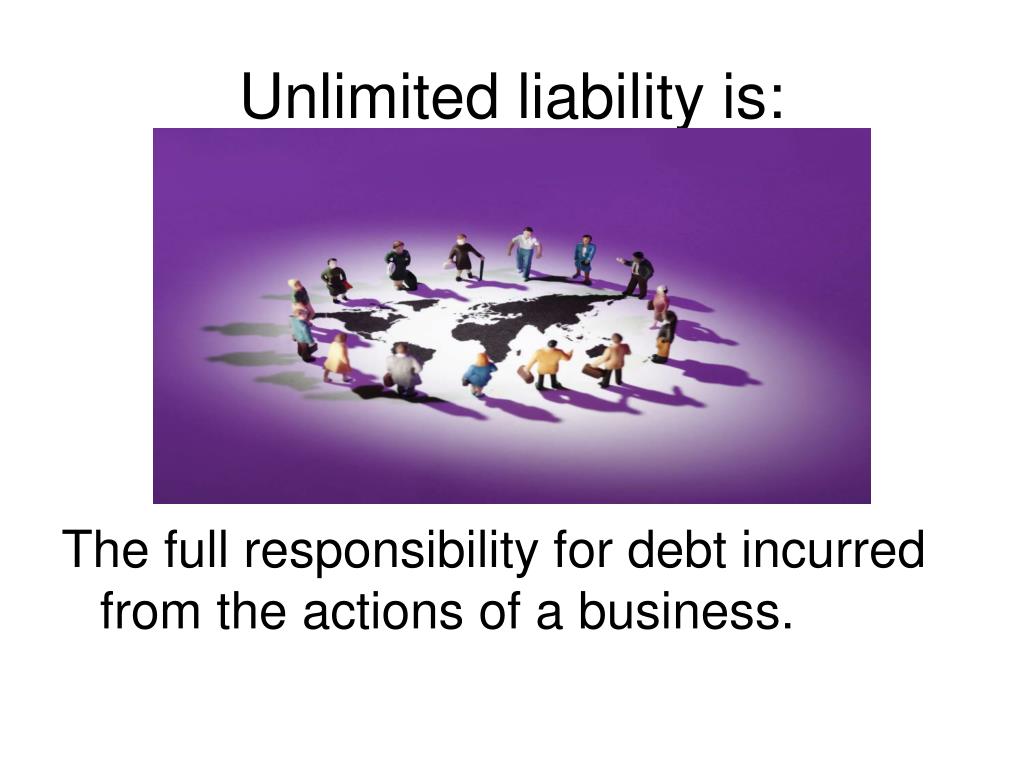The following are guidelines on which business structure will be suitable to register your business with.
(A) PROFIT MAKING STRUCTURES
- Business Name Registration as Sole Proprietorship

- Participant is one and is called Sole Proprietor;
- Liability of participant is unlimited (This means Decision Maker will avoid taking risk and thereby limit it’s commitments and business growth);
- Decision Maker = One Participant (The Sole Proprietor);
- Not useful for SEC listing (Shares is not involved, therefore no trading on stock exchange);
- The Business is not a separate entity from Participants (This means its not legal for the business to enter into a contract with third parties);
- Tax of the business are treated along side taxes of individual participants. That is, The income of the business is not taxable;
- Fund contribution (in-kind or in-cash) by participants is not mandatory;
- Number of participants involved: Minimum = 1, Maximum= 1;
- Constitution is not involved and not mandatory for registration.
2. Business Name Registration as Partnership (General Partnership)

- Participants are called Partners or Proprietors;
- Liability of participants are unlimited (This means Decision Makers will avoid taking risk and thereby limit their commitments and business growth);
- Decision Maker = Collective Participants (Partners/Proprietors). All Participants are involved in Decision Making process;
- Not useful for SEC listing (shares is not involve, thus no trading on stock exchange);
- The Business is not a separate entity from Participants (This means its not legal for the business to enter into a contract with third parties);
- Tax of the business are treated along side taxes of individual participants. That is, The income of the partnership as a business is not taxable;
- Fund contribution (in-ind or in-cash) by Participants is not mandatory;
- Number of participants involved: Minimum =2, Maximum= 20;
- Constitution is not involved and not mandatory for registration.
3. Limited Partnership (LP)

- Participants are called Partners;
- Liability of participants is a Mix of limited liability (participants to provide fund but no technical know-how) and unlimited liability participants (participants with technical know-how but has no fund);
- Decision Maker = Collective Participants (Board of Partners). It can be few selected Participants or All participants depending on what is included in the constitution;
- Not useful for SEC listing (No shares for trading on stock exchange);
- The Business is not a separate entity from it’s participants (This means its not legal for the business to enter into a contract with third parties);
- Tax of the business are treated along side the taxes of individual participants. That is, The income of the partnership as a business is not taxable;
- Fund contribution (in-kind or in-cash) by few participants is mandatory;
- Number of participants involved: Minimum =2, Maximum= 20;
- Constitution is involved in the form of Partnership Agreement and mandatory for business registration.
4. Limited Liability Partnership (LLP)

- Participants are called Partners;
- Liability of participants are limited;
- Decision Maker = Collective Participants (Board of Partners). It can be few selected Participants or All participants depending on what is included in the constitution;
- Not useful for SEC listing (No shares for trading on stock exchange);
- The Business is a separate entity from Participants (This means it can enter into contract with third parties);
- Tax of the business are treated along side taxes of individual participants. That is, The income of the partnership as a business is not taxable;
- Fund contribution (in-kind or in-cash) by participants is not mandatory;
- Number of participants involved: Minimum =2, Maximum= Unlimited;
- Constitution is involved in the form of Partnership Agreement and mandatory requirement for business registration.
5. Private Limited Liability Company (Ltd or Limited)


- Participants are called Shareholders;
- Liability of participants are limited (This means Decision Makers will always thrive to take calculated business risk needed for business growth);
- Decision Maker = Usually Collective Participants (Board of Directors). However, One Participant Decision Maker (One Man Business) is possible;
- Not useful for SEC listing (No shares for trading on stock exchange, however second tier market on the stock exchange might be available as option);
- Business is regulated beyond CAMA. and ISA (Investment & Security Act) Laws are to be complied with
- The Business is a separate entity from Participants (This means it can enter into contract with third parties);
- Tax of the business are treated separate from taxes of individual participants. That is, The income of the company is taxable;
- Fund contribution (in-kind or in-cash) by participants is mandatory in the form of shares;
- Number of participants involved: Minimum =2, Maximum= 50;
- Constitution is involved in the form of Memorandum and Article of Association and mandatory requirement for business registration.
- Private limited liability companies are not mandated to publish their financial information for public consumption but are obligated to present to Tax authorities and related regulators.
6. Public Limited Liability Company (PLC)


- Participants are called Shareholders;
- Liability of participants are limited (This means Decision Makers will always thrive to take calculated business risk needed for business growth);
- Decision Maker = Collective Participants (Board of Directors);
- Useful for SEC listing (shares are involved and can be traded on the floor of the stock exchange);
- The Business is a separate entity from participants (This means it can enter into contract with third parties);
- Tax of the business are treated separate from taxes of individual participants. That is, The income of the company is taxable;
- Fund contribution (in-kind or in-cash) by participants is mandatory in the form of shares;
- Number of participants involved: Minimum =2, Maximum= Unlimited;
- Constitution is involved in the form of Memorandum and Article of Association and mandatory requirements for Business registration.
- Public limited liability companies are mandated to publish their financial information for public consumption, Tax authorities consumption and other related regulators.
7. Unlimited Liability Company (ULC)


- Participants are called Shareholders;
- Liability of participants are unlimited (This means Decision Makers will avoid taking risk and there by limit their commitments and business growth);
- Decision Maker = Usually Collective Participants (Board of Directors). However, One Participant Decision Maker (One Man Business) is possible;
- Not useful for SEC listing (No shares for trading on stock exchange, however second tier market on the stock exchange might be available as option);
- The Business is a separate entity from Participants (this means it can enter into contract with third party);
- Tax of the business are treated along side the taxes of individual participants. That is, The income of the company is not taxable.
- Fund contribution (in-kind or in-cash) by participants is not mandatory;
- Number of participants involved: Minimum =1, Maximum= 50
- Constitution is involved in the form of Memorandum Only. Article of Association is not mandatory for registration.
- Unlimited liability companies are not mandated to publish their financial information for public consumption and Tax authorities consumption
- Unlimited liability companies are usually use as against Private limited company because the owners wish to keep information that could be valuable to competitors, such as turnover and the amounts paid in dividends, out of the public eye. Also, Amounts contributed by shareholders can be refunded to them.
- Unlimited liability company is like a company version of Business Name Registration (either as Sole Proprietor or as Partnership). They can be registered with or without shares capital. They can also be registered as private or public company.
(B) NOT FOR PROFIT


- Incorporated Trustees
- Company Limited by Guarantee
1. Incorporated Trustees
- Participants are called Trustees
- Decision Maker = Collective Participants (Board of Trustees)
- Minimum participants = 2, Maximum = Unlimited
- Constitution is involved in the form of By-Laws and mandatory requirement for registration purpose
2. Company Limited by Guarantee (Ltd/Gte)
- Participants are called Guarantor or simply put, Members
- Decision Maker = Collective Participants (Board of Directors)
- Minimum participant = 1, Maximum Participant = Unlimited
- There is no Shareholders
- Constitution is involved in the form of Memorandum and Article of Association and mandatory requirement for registration purpose
TEN (10) CRITERIA TO USE IN DETERMINING A SUITABLE BUSINESS STRUCTURE FOR YOUR BUSINESS
(a) is the business for Profit motive?
- If the answer is YES, then it’s for Profit motives, then only business structures listed under category A above will be suitable for your business
- If the answer is NO, it’s mean the business is not for Profit Motives, then either Incorporated Trustees or Company limited by Guarantee will be considered for use
What will then determine which one to use between incorporated Trustees and Company Limited by Guarantee will depend on the following understanding:
- (i) A company limited by guarantee is allowed to venture into business or profit making agenda but cannot share the profit among members; but Incorporated Trustees are not allowed to venture into profit making business.
- (ii) Willingness to make publication in newspapers before registration? Company by Limited by Guarantee does not require public awareness before registration while it is a requirement for incorporated trustees to carry the public along.
*IF THE ANSWERS TO THE ABOVE IS “NO” (THAT IS, NOT FOR PROFIT MOTIVE), THERE IS NO NEED TO CONSIDER OTHER CRITERIA BELOW. THE REMAINING CRITERIA BELOW FROM (b) to (j) ARE RESERVED FOR BUSINESSES WITH PROFIT MOTIVES
(b) Liability of participants to be limited?
- If YES, it means, participants will sell their property to settle any debt that the business cannot be settled.
(c) Needed for listing on Stock Exchange?
- If YES, it means more compliance burden as more professional will be employed to keep to the rules of SEC. This will make cost of running expensive.
(d) Business is a separate entity from individual participants?
- If YES, It means the Business can do any PUBLIC BID. They can tender for any Government Bid. Other business structure can only do Professional Service related public bids.
(e) Tax of business is treated separately from that of individual participants?
- If YES, it means more tax obligations. Engagement of Tax consultant, Auditors is a must and their fees will make cost of running the business to more expensive
(f) Fund contribution by Participants is mandatory?
- If YES, it means, financial commitments determine your rights to some benefits in the business. In also implies that Investors can be attracted. NOTE: If share capital will be involved, it simply means fund raising is involved and therefore YES will be an answer.
(g) Want decision making process to be fast?
- If YES, it means a business structure with ONE participant will be appropriate. Two Participants too can make fast decisions but not as fast with ONE participant.
- If NO, it means business structures with Collective Body Decision Maker will be suitable.
(h) Any requirement of the Law, CAC, Professional and regulatory bodies on the appropriate structure penciled down to carry on a trade or profession?
- For example, Corporate Affairs Commission (CAC) has mandated that all Schools are to be registered as Limited Liability Companies, Accounting and Legal practice are not to be carried out as Limited liability Companies, Banks, Insurance companies and other related financial institutions are to be carried out as Limited Liability Company.
- In some cases with Limited Liability Company , it is regulated with Minimum Share Capital to be in issued and be fully paid otherwise no business operations.
(i) Will there be need for a constitution that will guide business operations?
- If YES, it means a lot of paperwork and timing will be involved in the registration process thereby making it a complex process as against simplicity
- If NO, it means lesser timing and paperwork and more simple to register.
| NOTE: Constitutions takes the form of Bye-laws, Partnership Agreement, Shareholders Agreement and Memorandum and Article of Association (MEMART) |
(j) Which of the following will be the numbers of participants that will be involved (To Achieve Perpetual Succession) ?
| 1 (one) |
| Greater than 1 (one) but limited |
| Unlimited |
- If the answer is Greater than 1 (one) but limited, it means Business name registered as Sole Proprietor, Business name registered as Partnership (General Partnership), Private Limited Liability Company, Public limited Liability Company, Limited Liability Partnership, Limited Partnership are all available for use.
- If the answer is 1, it means Public Limited Liability Company and Limited Liability Partnership ( LLP) cannot be used
- If the answer is Unlimited, it means only Public Limited Liability Company and Limited Liability Partnership can be used.
Feel free to ask us anything about Corporate Affairs Commission and your business formation in Nigeria.
